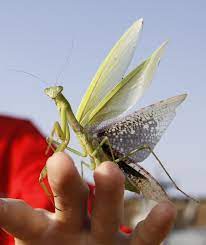
(For the audio version of this blog, please visit: http://brothersinchristcmf.org/wp-content/uploads/2022/11/Mass-Blog-for-the-2nd-Sunday-in-Advent-2022.mp3)
Baby Boomers can remember when TV could offer programming with messages that seemed almost scriptural. Take Kung Fu, for example. It dealt with the adventures of an exiled shaolin monk trying to reconnect with his family roots in America of the late 1800s. In each episode he also got involved in the struggles of a fellow outcast whose story inspired flashbacks to his own childhood. As a mixed race (American/Chinese) boy growing up in a shaolin temple, he struggled to align his ideas of what’s natural with those of the masters training students in the ways of shaolin priests. Things that were natural to those priests seemed supernatural to outsiders like him.
One key flashback shows young “Caine” watching the blind “Master Po” getting the upper hand on a sighted opponent during martial arts training. The boy is amazed at how this old blind man anticipates and counters each of his opponent’s moves. Sensing the boy’s amazement at the power of his remaining senses, Po says “Never assume that because a man has no eyes, he cannot see. Close your eyes. What do you hear?”
Young Master Caine answers, “I hear the water. I hear the birds.”
“Do you hear your own heartbeat? Do you hear the grasshopper at your feet?”
Caine opens his eyes and looks down at his feet to see a grasshopper there. “Old Man, how is it that you hear these things?”
Po responds, “Young Man, how is it that you do not?”
Scripture tells us that the supernatural things we Christian disciples have accepted as our Master’s accomplishments are only out of reach due to our lack of faith. See Mark 9:14, in which Jesus cures a boy possessed by a deaf mute spirit—the same boy his disciples were unable to cure. Those disciples, like we 21st century colleagues, find it easier to accept our faithless natural realm as “the New Normal,” rather than believe that even the weakest faith can make a big difference in the lives of others. A simple show of love to someone needing it may have entered the realm of the supernatural for our generation.
But in the world our God created, acts of love were meant to be as natural as the fruit that grows on trees. In fact, fruit trees that don’t produce fruit are unnatural and suitable for chopping down and burning for fuel. Those are much like the heavily rooted but sparsely fruited family trees from which the Pharisees and Sadducees in Sunday’s gospel came (Mt 3:1-12). These are the people John the Baptist could spot a mile away as they approached him for baptism. He knew they believed the roots linking them with the Abrahamic family tree qualified them as God’s chosen—naturally. But John challenges them (and us) to make natural the supernatural growth required of our family trees in order to bear fruit that nourishes others.
Do not presume to say to yourselves, ‘We have Abraham as our father.’ For I tell you, God can raise up children to Abraham from these stones. Even now the ax lies at the root of the trees. Therefore, every tree that does not bear good fruit will be cut down and thrown into the fire.
Unfortunately, the depleted soil in which many of humanity’s fruitless trees grow becomes all too natural in a Godless world. Supernatural fertility springs from the kind of harmony Paul encouraged among Jews and Gentiles in his letter to the Romans—from which we take Sunday’s second reading (Rom 15:4-9):
May the God of endurance and encouragement grant you to think in harmony with one another, in keeping with Christ Jesus, that with one accord you may with one voice glorify the God and Father of our Lord Jesus Christ.
Will the human race ever be able to trace our roots back to the trees of Eden? You know, the ones under which, as our first reading from Isaiah predicts, “the wolf shall be a guest of the lamb, and the leopard shall lie down with the kid; the calf and the young lion shall browse together, with a little child to guide them?” (Is 11:1-10)
That garden grows within you and me, Grasshopper.
–Tom Andel